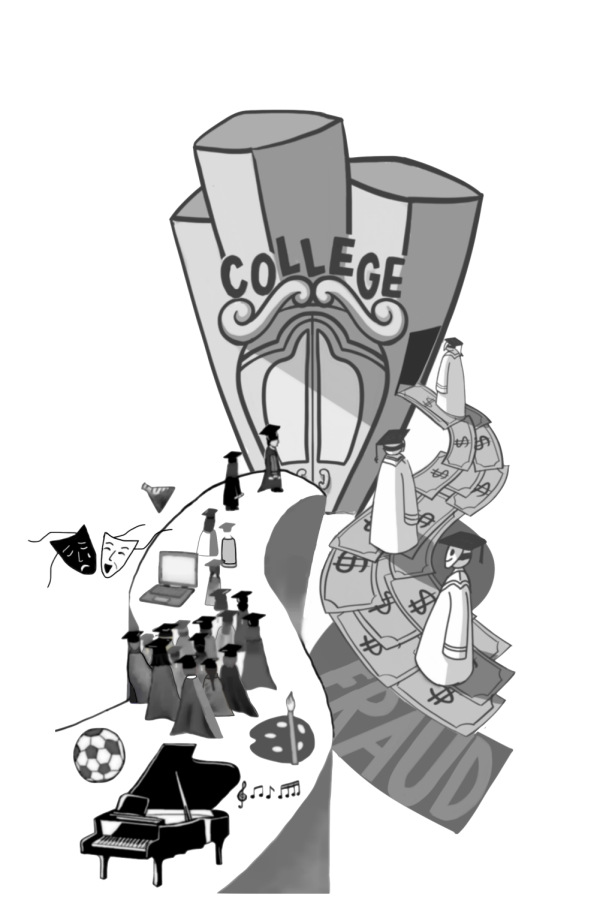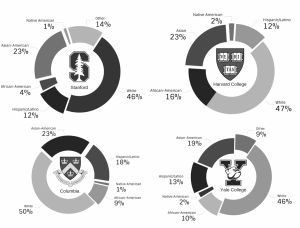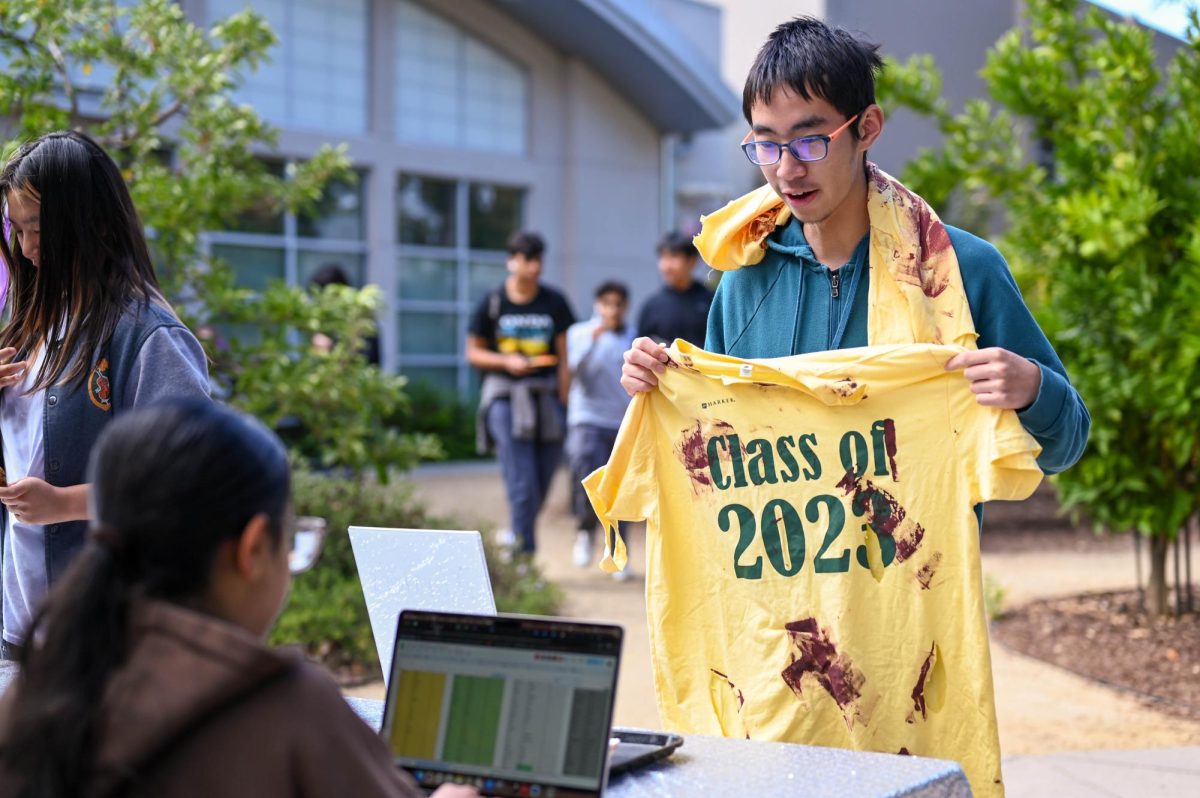Editorial: Scandal reveals flaws in admissions process
April 25, 2019
Last month, federal prosecutors charged over fifty people for their involvement in a college admissions scandal in which, among other illegal practices, parents of college applicants allegedly paid large sums of money to falsify standardized test results or have their children recruited for sports they did not play. Athletic coaches and administrators from elite colleges like the University of Southern California, UCLA, Yale, Wake Forest, Georgetown and Stanford were implicated in the conspiracy.
In an academically rigorous environment like ours, the rationale behind each family’s decision will no doubt be the subject of important ethical conversations. Yet this scandal also brings to light a deeper and more systemic problem embedded in the college admissions process: the misuse of power and privilege. The misrepresentation of the students’ talents was facilitated by the thousands of dollars their parents – many of whom are wealthy CEOs and celebrities – allegedly funneled into the process. The scandal serves as a manifestation of just one of the many ways that economic privilege plays a powerful and unjust role in our higher education system.
Donations and legacy admissions, or the preference of a university to accept students based on their family’s prior attendance, are two of the ways this privilege manifests itself in the process. Donations in bad faith often consist of a parent donating a building or wing of a building to a university in order to guarantee admission for their child. This guarantee is unfair, allowing for students to effectively buy their way into universities if they have enough money. And not all universities need to accept these donations of bad faith; many of the elite schools which receive these large donations already have endowments in the billions of dollars.
While the admissions scam demonstrates an extreme case of privilege’s role in the process, some systematic agnosticism of applicants’ donating capabilities could be beneficial and morally responsible of colleges. Though the prospect of receiving fewer donations is unappealing, it far outweighs the status quo, a pay-to-get-in mentality for those who have access to enough money and an unfair disadvantage for those who do not have similar amounts of money.
More generally, the college admissions process has never been completely merit-based, as it has encouraged side channels into admissions by allowing alternative forms of influencing college decisions to exist. The process must undergo a systematic change to make decisions closer to truly fair.


















![“[Building nerf blasters] became this outlet of creativity for me that hasn't been matched by anything else. The process [of] making a build complete to your desire is such a painstakingly difficult process, but I've had to learn from [the skills needed from] soldering to proper painting. There's so many different options for everything, if you think about it, it exists. The best part is [that] if it doesn't exist, you can build it yourself," Ishaan Parate said.](https://harkeraquila.com/wp-content/uploads/2022/08/DSC_8149-900x604.jpg)




![“When I came into high school, I was ready to be a follower. But DECA was a game changer for me. It helped me overcome my fear of public speaking, and it's played such a major role in who I've become today. To be able to successfully lead a chapter of 150 students, an officer team and be one of the upperclassmen I once really admired is something I'm [really] proud of,” Anvitha Tummala ('21) said.](https://harkeraquila.com/wp-content/uploads/2021/07/Screen-Shot-2021-07-25-at-9.50.05-AM-900x594.png)







![“I think getting up in the morning and having a sense of purpose [is exciting]. I think without a certain amount of drive, life is kind of obsolete and mundane, and I think having that every single day is what makes each day unique and kind of makes life exciting,” Neymika Jain (12) said.](https://harkeraquila.com/wp-content/uploads/2017/06/Screen-Shot-2017-06-03-at-4.54.16-PM.png)








![“My slogan is ‘slow feet, don’t eat, and I’m hungry.’ You need to run fast to get where you are–you aren't going to get those championships if you aren't fast,” Angel Cervantes (12) said. “I want to do well in school on my tests and in track and win championships for my team. I live by that, [and] I can do that anywhere: in the classroom or on the field.”](https://harkeraquila.com/wp-content/uploads/2018/06/DSC5146-900x601.jpg)
![“[Volleyball has] taught me how to fall correctly, and another thing it taught is that you don’t have to be the best at something to be good at it. If you just hit the ball in a smart way, then it still scores points and you’re good at it. You could be a background player and still make a much bigger impact on the team than you would think,” Anya Gert (’20) said.](https://harkeraquila.com/wp-content/uploads/2020/06/AnnaGert_JinTuan_HoHPhotoEdited-600x900.jpeg)

![“I'm not nearly there yet, but [my confidence has] definitely been getting better since I was pretty shy and timid coming into Harker my freshman year. I know that there's a lot of people that are really confident in what they do, and I really admire them. Everyone's so driven and that has really pushed me to kind of try to find my own place in high school and be more confident,” Alyssa Huang (’20) said.](https://harkeraquila.com/wp-content/uploads/2020/06/AlyssaHuang_EmilyChen_HoHPhoto-900x749.jpeg)













